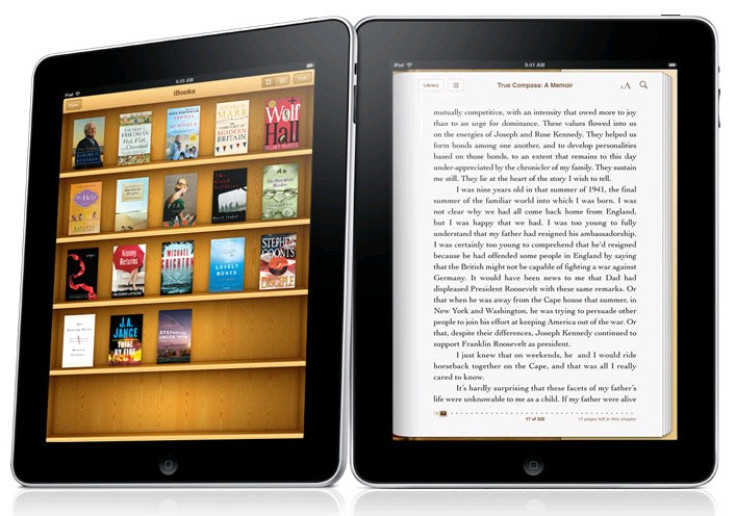Judge Approves Ebook Price Fixing Settlement – Apple Disapproves
Apple will likely appeal a decision by a US court to approve a settlement between three major publishers and the US government over price fixing of ebooks.

In a decision that many predict could spark an ebook price war, a federal judge has approved a settlement between the US Department of Justice (DoJ) and three major publishers in a civil antitrust case that accuses the companies of collusion in the pricing of ebooks.
It was back in April that the DoJ announced it was suing Apple and five of the biggest publishing houses - Hachette, HarperCollins, Macmillan, Penguin and Simon & Schuster - over collusion to fix ebook pricing,
Three of the publishers - Hachette Book Group, Simon & Schuster and HarperCollins - denied wrongdoing but agreed soon after the lawsuit was filed to settle with the US government.
In contrast, Apple, Penguin and Macmillan all denied the allegation, with Apple saying the claims were "simply not true." They have vowed to defend themselves against the charges and are due to go to trial in June 2013.
The decision by Judge Denise L. Cote to approve the settlement has been widely criticised by, among others, the retailer Barnes & Noble, the Authors' Guild and the American Booksellers Association. Apple has not commented on the decision, but has previously indicated in court filings that it would appeal the approval of the settlement.
Part of the settlement will see the three publishers break their contracts with Apple and refrain from limiting any retailer's ability to set ebook prices for two years. Apple has criticised the approval of the settlement because it says that, even if it prevails in the trial next year, it will not be able to simply reinstate its contracts with these publishers.
Fear
Critics of the decision fear it will open the door for Amazon to revert to its practice of severely discounting ebook prices as it did several years ago, when it captured almost 90 percent of the market.
None of the parties involved in the case, including Amazon, have commented on the decision. Due to Apple's probable appeal, it could however be some time before consumers see the lower prices trickle through to them.
"It's devastating to bookstores," Paul Aiken, executive director of the Authors Guild told the Wall Street Journal. "For two years the settling publishers must allow vendors to discount ebooks at any price they want.
"The court acknowledges that this restores the status quo conditions before 2010, when Amazon was able to capture 90 percent of the ebook market. The Justice Department is reshaping the literary marketplace without submitting a single economic study to the court to justify its actions."
The ebook market exploded with the launch of the first Kindle ereader from Amazon in 2007, when the online retail giant began selling bestselling titles for just $9.99, significantly less than their high street price.
While Amazon took a hit on a number of titles, it felt that capturing that audience and turning them in loyal customers was a better option - and so it proved. At the height of its popularity, Amazon held over 90 percent of the ebook market.
The introduction of the iPad in 2010 and Apple's indication that it wanted to sell ebooks on it, changed the market considerably. Apple approached publishers and suggested a pricing model in which the publishers would set consumer prices rather than the retailers themselves.
Retailers, such as Apple, would then receive a fee for selling the books. This became known as the agency model.
The five publishers named in the lawsuit agreed to the deal, setting ebook prices for bestselling titles at $12.99 and above, which led the D0J to file its lawsuit.
© Copyright IBTimes 2024. All rights reserved.







